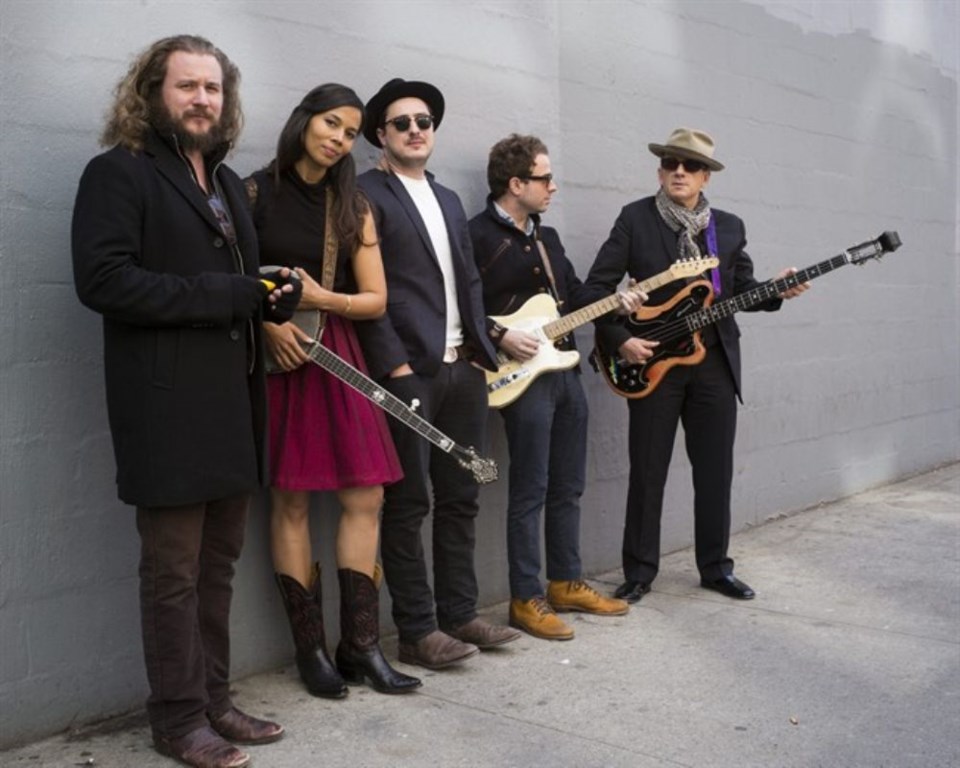In our age of cancel culture, it seems odd to see an artist cancelling himself.
New Wave icon Elvis Costello recently asked radio stations not to play the most popular original hit of his storied career, Oliver’s Army. He added as well that he will no longer be performing the song publicly.
The song contains the n-word, a phrase that was regularly used in 1978 when the song was written but is no longer tolerated in 2022. That fact says something about the advancement of our culture. Thank goodness.
In recent years, radio stations began bleeping the word out, drawing more attention to it. Costello therefore felt it was better to simply put the song away.
To the casual listener, Oliver’s Army sounds like a happy, upbeat pop song. It is in fact a cutting social commentary. Costello is of Irish heritage, a group targeted and suppressed by the English for centuries. As a member of the British army, his grandfather was referred to as a “white n-word,” thus the context of the phrase in the song.
The army in Oliver’s Army is indeed that same British army, and Oliver is the detested Oliver Cromwell who not only developed the idea of a paid, standing army, he also used this army to subjugate the people of Ireland.
Costello wrote the song after performing in Belfast, where a large contingent of heavily armed British soldiers circulated, harassing the Catholic population.
Using his talents as one of the greatest wordsmiths of the New Wave era, Costello wove this idea into a masterpiece that challenged the concept of colonization and military domination. The lyrics also look empathically at the soldiers sacrificed in this cause, noting that most of them were from regions of high unemployment and poverty where young people had few other prospects in life.
Little seemed to have changed between the Ireland of Cromwell’s era and the Belfast of the 1970s.
Other than our sensitivity to offensive language, is the world really different than it was when Costello penned Oliver’s Army? Great Britain has indeed continued to deteriorate as a world power, but the United States and other NATO members tried to fill the gap they left behind as their empire collapsed.
Today, neocolonialism is alive and well, as are large standing armies and obscene military budgets. So is the myth that militarism is effective in maintaining order. In essence, we are being told that supporting Oliver Cromwell’s concept of military might is a good investment of our tax dollars.
The truth is military domination is based on the concept of forced compliance. Mohandas Gandhi demonstrated to the British in the first half of the 20th century that this does not work because you cannot rule over people who refuse to be dominated. If massive numbers of people choose not to comply with the wishes of a colonizer, an army is powerless.
In addition, military violence breeds resentment and resistance. Though his rule ended in the 17th century, to some Irish, Oliver Cromwell remains to this day the personification of oppressive foreign domination.
The United States lost wars in Vietnam and Afghanistan and will never gain control in Iraq because their violent ways understandably fail to win the trust of the people. The USA now finds itself at the end of a long list of failed empires.
If investment in “Oliver’s army” is futile, what does effective foreign policy look like? It’s made up of scenarios where all sides benefit, with a particular focus on healthcare and education.
Of course, there will always be a need to establish law and order. A small number of criminals are present in every population, but we don’t need high-tech missile systems to hold them accountable.
Elvis Costello may have chosen to cancel his own song, but perhaps it is time for the rest of us to cancel the entire idea of Oliver’s army.
Gerry Chidiac is a Prince George teacher.



